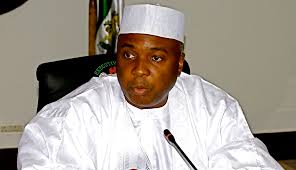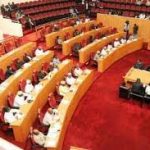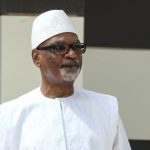Opinion: Essence of Ministerial Screening By Senate
Featured Contributors/Columnists, Latest Headlines Saturday, October 24th, 2015
By Prof. R. A. Ipinyomi, University of Ilorin, Nigeria
BALTIMORE, MD (AFRICAN EXAMINER) – There have been so many versions and opinions about the ongoing ministerial screening by the Senate arm of Nigeria. Some have claimed openly that the approval of at least two of the three senators from each state is a necessary criterion, others saying that at least 50% of members of the entire Nigeria Senators (55 of 109) is the condition. However the Senate president, Dr. Bukola Saraki, has only been calling for the loudest noise between the “Aye” and the “Nah” and at the end choosing his own preference. At present we don’t have a full house of 109 Senators because a number of them have lost their seats following the outcomes of some pronouncements in several Courts across the country recently. In reality there should be a head count but not absolutely necessary, but best for our records. A simple majority of attendance should suffice.
The provisions in the Nigeria’s Constitution and the one in the Nigeria Senate Standing Rules relating to appointment and screening of ministers should be very relevant here. Whereas it is only “good” to have state home support from own’s state senators but none of the laws have made the endorsement of a nominee by at least two of three Senators from the nominee’s state of origin a compulsory criterion. The relevant points from the Nigeria constitution and Nigeria Senate Rules are as follows:– (1) There shall be such offices of Ministers of the Government of the Federation as may be established by the President. (2) Any appointment to the office of Minister of the Government of the Federation shall, if the nomination of any person to such office is confirmed by the Senate, be made by the President. (3) Any appointment under subsection (2) of this section by the President shall be in conformity with the provisions of section 14(3) of this Constitution. (4) Provided that in giving effect to the provisions aforesaid the President shall appoint at least one Minister from each State, who shall be an indigene of such State. (5) Part 2 The Senate Standing Rules Section 120 says “That the Senate shall not consider the nomination of any person, who has held any public office as contained in Part 2 of the Fifth Schedule of the Constitution prior to his nomination unless there is a written evidence that he has declared his assets and liabilities as required by Section 11(1) of Part 1 of the Fifth Schedule of the Constitution of the Federal Republic of Nigeria; such declaration shall be required for scrutiny by the senators. (6) An appointment to any of the offices aforesaid shall be deemed to have been made where no return has been received from the Senate within twenty-one working days of the receipt of nomination by the Senate.
The President has made his nominations, has he covered every state fairly? Are the nominees constitutionally eligible? Should the Senators keep delaying and adjourning after the contitutional 21 working days then we’ll get into how many days make 21 working days. Because the Nigeria Senate thinks it conducts it’s business affairs only three days a week does not guarantee them a latitude of extention or interpretation of working days. They, the president, governors, are elected to work seven days a week. If the need should arise there is no reason why business should not hold on a particular day of the week. There is no local interpretation of, or on, a published law. The Nigeria Senate should tell the public why they won’t ever conduct official business on Monday, Friday, Saturday or Sunday, even when Nigeria may be under fire. Can these people who prefer their rest and comfort save us if under a threat? They should interpret their 21 working days from that angle, not from their preferred convince.
Hence the essence of the ministerial screening bothers more on personal integrity, state of origin, asset declaration, and ensuring that each state has been represented by the President’s list. So far, after 25 nominees had been screened, no questions had been asked on asset declaration, very few on State of origin, the Senators have not grouped themselves up to their own specialised backgrounds and questioning from thence. Familiar questions from media, depending on whether the individuals, like the formal Governor or Rivers, have been enjoying publicity coverage, wrongly or otherwise. It is easier to pass Senate Screening than for any of our youths to get admission the a university or get a job after NYSC. Some nominees were simply asked to bow because of the class they belong, eg former Senators or party leaders, etc. The times have not been uniform nor the questions equally uniform. A twenty-minute well packed question time should have been enough to fail or pass a nominee and stop playing to gallery of politicians and social media.
To us from mathematical sciences a good test must be robust. We judge robustness from the ability of the test to (a) accept the nominee each time the president has been correct or (b) reject a nominee because he or she truly fails a constitutional provision. Recently there was a court that dismissed the election of a law maker in the land because he had served a jail term and the whole public, his party and community concealed this vital information for him. Nigeria used to be an open society where everyone knows each other’s name and history. We expect much more from the Senate than we are getting. Or the Senate is failing because it is listening to the political market noise rather than looking for fairness and what is best for Nigeria.
Prof. R. A. Ipinyomi, University of Ilorin, Nigeria
Related Posts
Short URL: https://www.africanexaminer.com/?p=26713




















